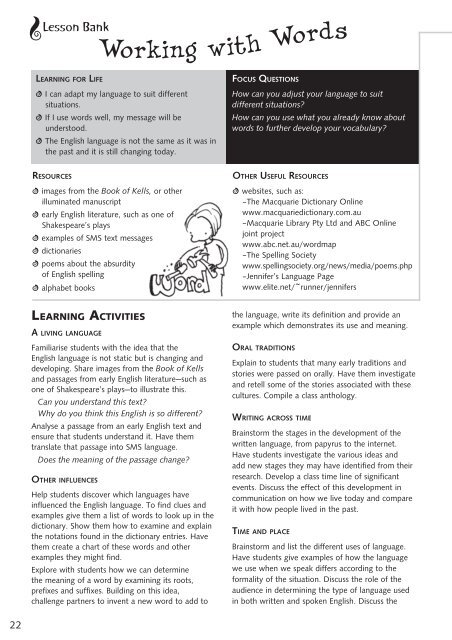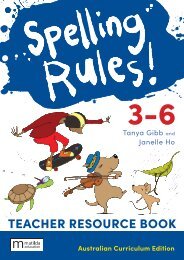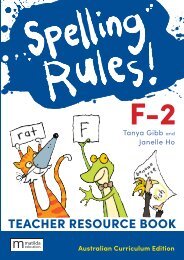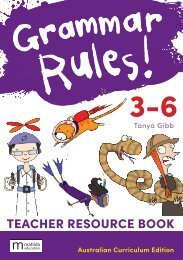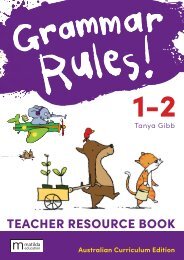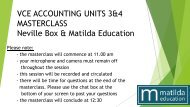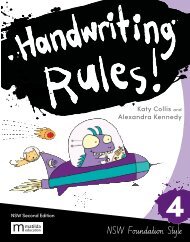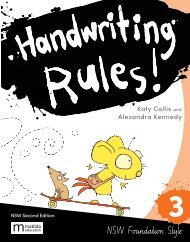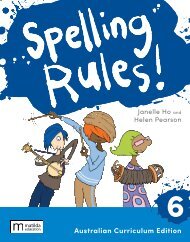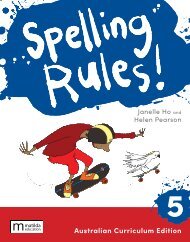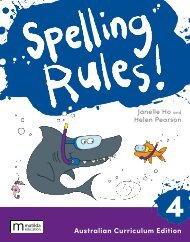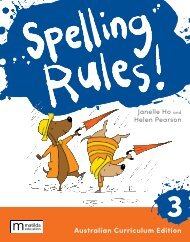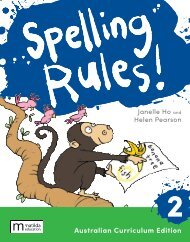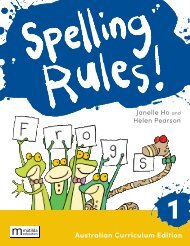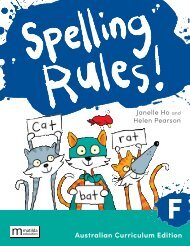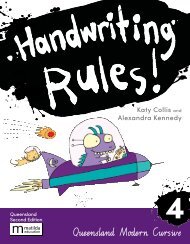All You Need to Teach - Info Literacy 10+
Create successful ePaper yourself
Turn your PDF publications into a flip-book with our unique Google optimized e-Paper software.
Lesson Bank<br />
Working with Words<br />
Learning for Life<br />
V I can adapt my language <strong>to</strong> suit different<br />
situations.<br />
V If I use words well, my message will be<br />
unders<strong>to</strong>od.<br />
V The English language is not the same as it was in<br />
the past and it is still changing <strong>to</strong>day.<br />
Focus Questions<br />
How can you adjust your language <strong>to</strong> suit<br />
different situations?<br />
How can you use what you already know about<br />
words <strong>to</strong> further develop your vocabulary?<br />
Resources<br />
V images from the Book of Kells, or other<br />
illuminated manuscript<br />
V early English literature, such as one of<br />
Shakespeare’s plays<br />
V examples of SMS text messages<br />
V dictionaries<br />
V poems about the absurdity<br />
of English spelling<br />
V alphabet books<br />
Other Useful Resources<br />
V websites, such as:<br />
–The Macquarie Dictionary Online<br />
www.macquariedictionary.com.au<br />
–Macquarie Library Pty Ltd and ABC Online<br />
joint project<br />
www.abc.net.au/wordmap<br />
–The Spelling Society<br />
www.spellingsociety.org/news/media/poems.php<br />
–Jennifer’s Language Page<br />
www.elite.net/~runner/jennifers<br />
Learning Activities<br />
A living language<br />
Familiarise students with the idea that the<br />
English language is not static but is changing and<br />
developing. Share images from the Book of Kells<br />
and passages from early English literature—such as<br />
one of Shakespeare’s plays—<strong>to</strong> illustrate this.<br />
Can you understand this text?<br />
Why do you think this English is so different?<br />
Analyse a passage from an early English text and<br />
ensure that students understand it. Have them<br />
translate that passage in<strong>to</strong> SMS language.<br />
Does the meaning of the passage change?<br />
Other influences<br />
Help students discover which languages have<br />
influenced the English language. To find clues and<br />
examples give them a list of words <strong>to</strong> look up in the<br />
dictionary. Show them how <strong>to</strong> examine and explain<br />
the notations found in the dictionary entries. Have<br />
them create a chart of these words and other<br />
examples they might find.<br />
Explore with students how we can determine<br />
the meaning of a word by examining its roots,<br />
prefixes and suffixes. Building on this idea,<br />
challenge partners <strong>to</strong> invent a new word <strong>to</strong> add <strong>to</strong><br />
the language, write its definition and provide an<br />
example which demonstrates its use and meaning.<br />
Oral traditions<br />
Explain <strong>to</strong> students that many early traditions and<br />
s<strong>to</strong>ries were passed on orally. Have them investigate<br />
and retell some of the s<strong>to</strong>ries associated with these<br />
cultures. Compile a class anthology.<br />
Writing across time<br />
Brains<strong>to</strong>rm the stages in the development of the<br />
written language, from papyrus <strong>to</strong> the internet.<br />
Have students investigate the various ideas and<br />
add new stages they may have identified from their<br />
research. Develop a class time line of significant<br />
events. Discuss the effect of this development in<br />
communication on how we live <strong>to</strong>day and compare<br />
it with how people lived in the past.<br />
Time and place<br />
Brains<strong>to</strong>rm and list the different uses of language.<br />
Have students give examples of how the language<br />
we use when we speak differs according <strong>to</strong> the<br />
formality of the situation. Discuss the role of the<br />
audience in determining the type of language used<br />
in both written and spoken English. Discuss the<br />
22


